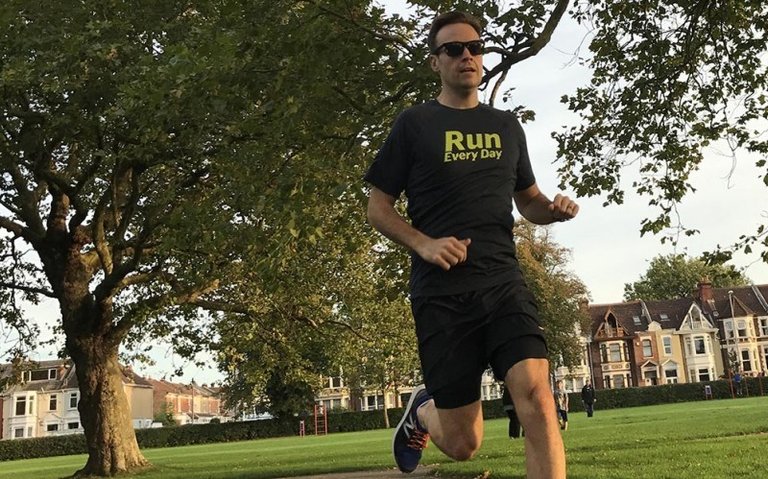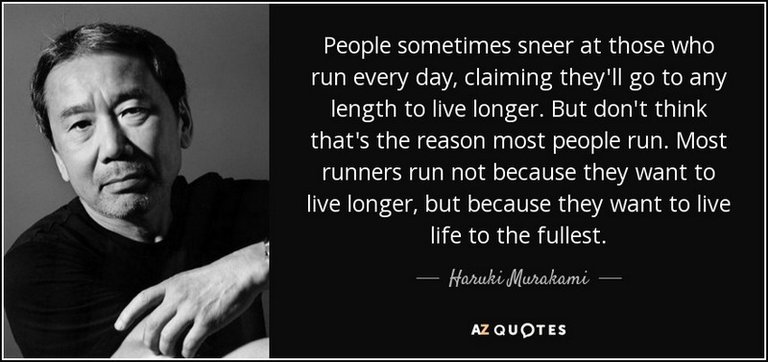If you run at least 1.61. km or 1 mile each and every day … you are on a Running Streak. And you become a Streak Runner. Let's develop this simple sentence some more...
- what is a Running Streak?
- why on Earth would somebody decide to rune every day?
- what made me decide to go on a Running streak?
What is a Running Streak?
The official definition of a Running Streak, as adopted by the Streak Runners International, Inc., and United States Running Streak Association, Inc. explains a Running Streak as follows: to run at least 1.61 kilometers or 1 mile within each calendar day. Running may occur on either the roads, a track, over hill and dale, or on a treadmill.
Simple, isn't it? On some days yes, on some days less...
How can I tell?
Well, I am on a Running Streak for more than 600 days. Today – I am writing this on 18th of February 2017 – I ran my 627th consecutive daily run.
Why on earth people decide for a Running Streak?
Even if it may seem daunting and difficult there are many positive effects of a running streak and different reasons why people do it. Let's look at them!
1. Running Streak can be used as a bridge between 2 program preparations for races
Especially challenging part of being a runner is “in-between” period after the finished race and prior the start of the training for next race. Many runners decide that before they apply for next race and start to train according to the program, they will self-discipline them during this break with a commitment to the Running Streak. It is not too demanding, but it gives you a »simple-rule discipline«: just run (at least) 1.61 km or 1 mile every day.
2. Running streak during holiday season or on vacation
The holiday season can be a difficult period to find motivation for the running. Many people do the 40-day streak from 23rd of November till 1st of January (total of 40 streak running days). The similar decision can be made on vacation: "I have plenty of time now, I can pack 1.61 km / 1 mile in every day of this vacation!". Without this "goal" to keep the streak alive, it is very easy to get lazy and festive and forget that movement is a healthy and important element of a quality everyday life. It is very doable. After all: we are talking on average about 10 minutes of your time.
3. You can use a Running Streak as a personal challenge
You can challenge yourself and say for instance: »I will do 30 consecutive days of running!«. And when you tick them off, your goal is achieved and this was it. But be aware: it is not very unlikely that in 30 days you will experience so many benefits of the Running Streak, that you will start to like it... and you will be reluctant to end it! So: you will become Streak Runner without a known end date.
4. Daily running or a Running Streak can be used as a core habit of a person
Running daily will become a habit with enough repetitions. I can confirm this from practice and it is backed by science. Study from 2010 was analyzing and monitoring, how new habits are formed.
96 individuals (undergraduates) were participating in this study. They were asked to adopt a new healthy behavior (eating, drinking or activity related) and repeat it once a day for 12 weeks or 84 days. Here are some valuable findings:
- the average time to reach the level of automaticity in behavior was 66 days.
- more complex behaviors took more time to become a habit than simpler ones.
- exercise-related activities took on average one and a half times longer than eating and drinking behavior.
It took me a bit more than 2 months to recognize that I became a "habitual" daily runner. Long? Well, if you think about it: what is 2-3 months of additional effort if after that period of time you can live your life on a higher quality level?
What made me start the Running Streak?
For me, the idea that I should start a Running Streak was born on one of the running races. At that time I did not know that this even exists nor that many people around the world are on running streaks. I was heading towards finishing line of a 3 Hearts Half-marathon and was contemplating the content of the book I was reading at that time: Charles Duhigg's Power of Habit. I said to myself that if I really want to test what the book is saying about how habits are formed I have to do an experiment of my own and ... and it should involve running! I combined 2 things I struggled with for many years:
- I liked mornings, but I had difficulty to wake up early.
- I was a runner for many years but I always struggled with following my running schedule.
The idea of daily morning runs was born. I decided that this will become my new habit. And it did. Well, I formed it in approximately 3 months and practiced it in reality for 416 mornings. On the 417th morning, I modified morning run to daily run... No, I did not oversleep my 417th morning run... It was a pragmatic decision between keeping the morning run streak and lose a potentially important business opportunity or vice versa. I made a choice to stay with regular daily running, but not to make a fuss if it is not done in the morning. I still run my daily runs. Sometimes in the morning, more often later in the day and here and there also in the evening or late in the night. This approach also gives me more flexibility to run in the best weather for running.
In the next part of this blog, you will be able to read about benefits of Running Streak, who are the famous Streak runners and some other interesting and useful information about this unusual running approach.
Stay tuned!
Thank you for reading! Looking forward to your comments, questions, and sharing the takeaway!

If you liked this post and you like running, you might also like to read these:
My daily posts about daily runs on @dailyrunner
Manual for wannabe runners - parts 1 - 3
How I started to run or can a workaholic and sedentary couch potato become a marathon runner?
2018 is here! Any New Year's resolutions? And who am I to write about this?
If you run, apply to Runningproject. Project connects runners on Steemit! Isotonic can help you run and "regenerate" after your run!



Thank you for explaining it so clearly. I've been wondering about it and admit having the same thoughts that most people do when I first heard about it. Plus, you covered my question about recovery so well that I've put it aside.
I've been thinking about switching to morning runs because sometimes my day gets away from me and mornings tend to be the easiest time to control. You inspired me to make the change.
You are welcome and you made my day with the comment that you feel inspired to make a change! Morning runs do change your daily routine and for me, it was really hard in the beginning. But once a habit takes away the "it is difficult" part, nothing compares to morning views and the feeling that you start each day with a little personal victory (you already ran).
I just don't think I can fit a run into every day, but it's amazing if you can. I'm aiming to run at least 3 times each week, but I want to do longer distances.
BTW I think you have the numbers the wrong was around. 2km is 1.6 miles
Three times per week is great!
The official minimum distance is 1 mile, which is 1.6 km. My personal minimum (I set it so) is 2 km. So it really was not clearly written. Thank you for pointing this out - I've cleared the text.
Run often. Run long. But never outrun your joy of running.

-Julie Isphording
Resteemed by @runningproject
Kind reminder:
Remember to vote your Running Author of the week!
This was such an interesting post and I wish I could do a running streak but i struggle with the 4 runs I try and do each work. I would also love to be this disciplined. Good on you and everyone who does this, I admire you all xx
Thanks a lot!
I too love mornings but have difficulty in getting up early, but still trying to run every day. Evenings a really feel drained out for a run.Your runs are highly motivating, thanks for sharing. But what do we do if we miss a day, do we reset the counter? (Recently I missed a day, though that feeling missed out is there I have started again, but don't know I do I ensure being consistent and keep the count).